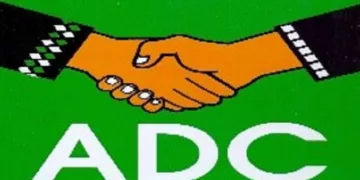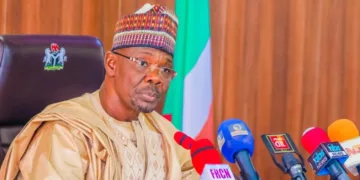The North Central Citizens Council (NCCC) has distanced itself from the recently unveiled opposition coalition led by former Vice President Atiku Abubakar, describing it as lacking clarity of purpose and credibility.
The NCCC’s publicity secretary, Jonathan Omodayo, said the group’s decision to reject the coalition, championed by the African Democratic Congress (ADC), was based on its assessment that the alliance includes individuals with long-standing political records that have not yielded meaningful national progress.
“Nigeria is indeed going through critical times, and it is important that citizens remain vigilant and discerning. Many of those now speaking of national salvation were, until recently, major players in the challenges we currently face,” Omodayo said.
He called on Nigerians to support the administration of President Bola Ahmed Tinubu, stating that the government is still laying the groundwork for economic reform, infrastructure development, and national unity.
“We believe the new alliance, led by former Vice President Atiku Abubakar and others, lacks the moral authority to present itself as a credible alternative. These are individuals who have occupied high positions in the past, yet many of the same issues they now speak against emerged under their watch,” he said.
He noted that Atiku Abubakar’s repeated attempts at the presidency have not gained traction with the electorate, and urged the citizens to evaluate political actors based on their track records and consistency.
“While democratic coalitions are an essential part of political participation, we must ask important questions about those at the helm of such alliances,” Omodayo added.
The NCCC also mentioned other prominent figures in the coalition, including Nasir El-Rufai, Rotimi Amaechi, David Mark, Rauf Aregbesola, Sule Lamido, Abubakar Malami, and Hadi Sirika, suggesting that their previous roles in government contributed to some of the economic and political challenges Nigeria currently faces.
“The formation of coalitions is not inherently wrong, but it becomes worrisome when those who have been part of the system they now criticise seek to rebrand themselves as reformers without acknowledging their own contributions to past failures,” Omodayo said.











